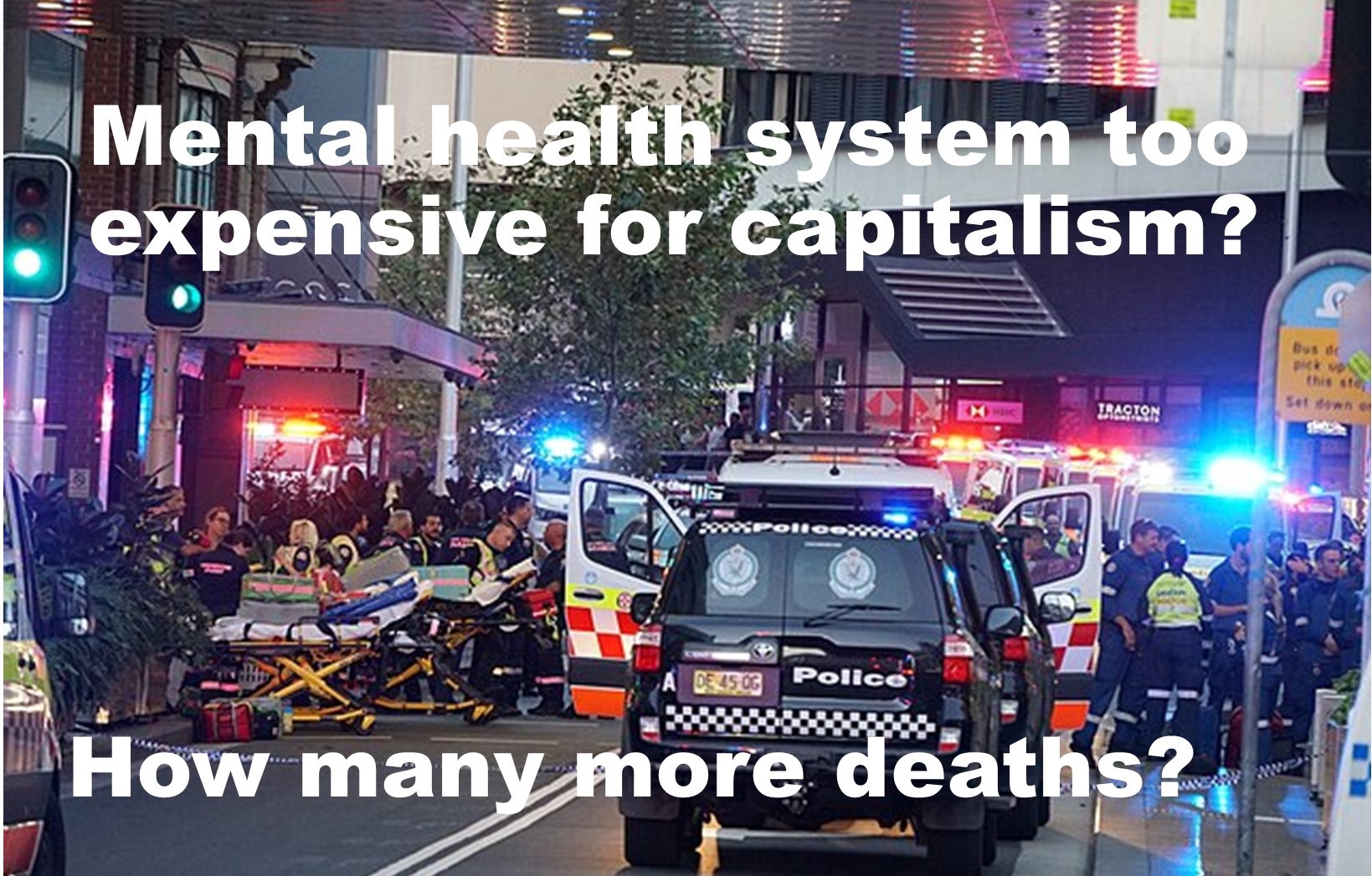Written by: Louisa L. on 24 April 2024
The tattered remnants of public mental health care in NSW are held together by family members and volunteers.
The week before six people were fatally stabbed in Bondi, and a mentally ill 16-year-old stabbed a priest, two Uniting Church psychiatric hospitals were closed in Sydney, because they were losing money.
When six strangers in a crowded public place are killed, grief and shock is inevitable. The media fans it to fever pitch. But people are frequently “murdered” by family members suffering psychotic episodes. And police too often shoot mentally ill people who ought to have been in hospital or long-term residential rehabilitation.
Instead of suggesting triple zero and an ambulance, when “you or someone you know” is mentally ill, the media choruses Lifeline and Beyond Blue. A young friend frequently uses Lifeline’s skilled volunteer services. Being alone and suicidal is not enough to be admitted to hospital – unless she’s taken an overdose.
On a pension she pays private health cover, so she can have occasional and much needed treatment in an expensive private hospital.
After the ambulance left
The mental health system is designed to stop people being hospitalised, unless they have money to pay, and they are well enough to understand they need help.
Last winter, under a suburban Sydney neighbourhood centre awning in pouring rain, a close friend, a mother and two adult daughters, waited for police and an ambulance.
It had taken hard arguing to convince my friend that police be called after her 16-year-old son threatened them, so he could be admitted to a psychiatric hospital. A centre worker did unpaid overtime while they talked.
What happened? The son, who had previously assaulted his mother, sister and brother, assured the ambulance officers and police he wouldn’t harm himself or anyone else. Imagine the family’s vulnerability when the police and ambulance officers left. Instead of a dangerously ill young person receiving necessary treatment, the three women each found separate accommodation. An uncle and a youth worker checked on my friend’s son the next day, but he lived alone for over two weeks until his still fearful mother returned.
Desolation and grief
But his family’s grief is nothing compared to the desolation of the Bondi attacker’s parents whose son endured a living nightmare, denied desperately-needed health care, his life ended in such terrible circumstances. Nor does my friend’s ongoing worry compare to the grief of the families of those killed in that suburban shopping centre, or the family of the 16-year old on terrorism charges.
The media babbles about “people falling through the cracks in the mental health system”. What system? It’s not cracked. It’s been dismantled brick by brick because the mentally ill and their families are weak and unable to defend themselves. They are the bottom of capitalism’s heap. Their treatment is expensive, not privately profitable. They are disposable.
Mentally ill people are disproportionately part of the homelessness epidemic. Alongside First Peoples, alongside the poor and illiterate, mentally ill people fill our jails. Because under capitalism there’s always money for jails to mop up its normal functioning.
NSW Premier Minns announced an $18 million inquiry into what went wrong in the lead-up to the Bondi stabbings. Unless it’s accompanied by struggle to reinstate public mental health care at all levels, it will be just another whitewash. We know the state government funding cupboard is bare, after decades of corporate plunder and privatisations.
For mental health, it’s been empty for decades. More deaths, more suffering – that’s capitalism’s promise to profoundly ill people and their families. Seven more dead and a 16-year-old charged with terrorism? Collateral damage. Nothing $18 million, plus media evasions and a lot of sorry talk, can’t sweep from sight.
We need a new system. We need a revolution.


No comments:
Post a Comment